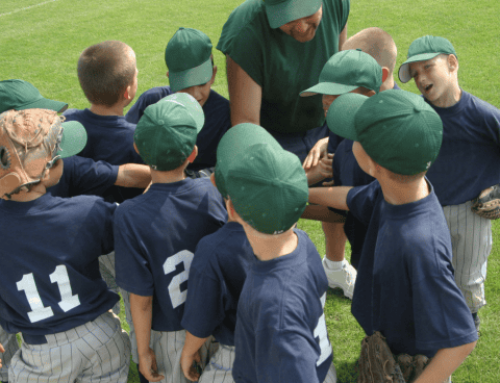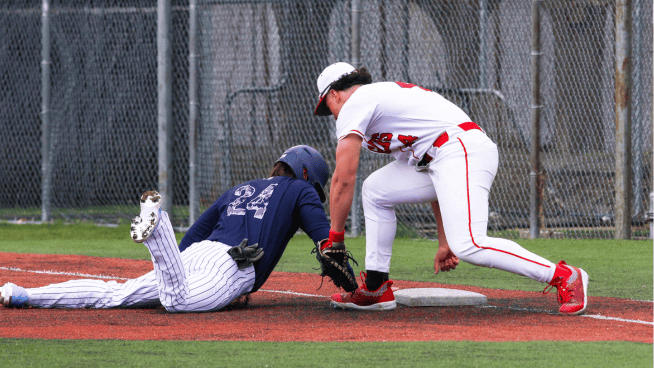Why There’s No Such Thing as an ‘Elite’ Youth Athlete
Right this second, you can go online and find a list of the top basketball recruits for the class of 2031.
It consists of the “best” basketball recruits who are currently in the third grade.
According to Don Showalter, Director of Coach Development for USA Basketball, this “ranking” of childhood and pre-teen athletes is an absolutely ridiculous trend.
“Talking about elite players at the youth age is ridiculous,” Showalter said at a recent Cavaliers Academy camp. “You can go on the internet and find out this player is ranked the best sixth grade player in the country, and they’re ranking (these really young) players. Well, there’s no such thing as an elite player until maybe you get to 17 or 16 and find out that (the) NBA (is a) possibility. Then that might change a little bit. An interesting stat is that the No. 1-ranked player as a ninth grader has never been the No. 1-ranked player as a senior. So that’s how much those rankings are really worth. The main thing is are they having fun and are they getting better. That’s what we emphasize.”
We’re inclined to agree.
For one, it’s almost impossible to predict how a player’s body or skills will develop from such an early age. As evidenced by the fact Showalter cited regarding the top-ranked freshman never being the top-ranked senior, even predicting these factors for a teenaged player is quite difficult. For a kid who’s still in grade school? There are simply way too many variables at play for rankings of such young players to really mean anything. Many future NBA players may not yet being playing basketball in the 4th grade, as was the case with DeAndre Ayton.
But the biggest issue with these rankings is that their simple existence makes many parents think they’re important. If there’s a list, they think their kid needs to be on it, no matter how young they are. That leads to potentially destructive behaviors like parents pushing children towards early specialization, making them play one sport year-round, and ingraining a “me-first” mindset rather than a “team-first” mindset in the young athlete.
Kids have plenty of time to gain exposure during their teenaged years. Their childhood and pre-teen years should largely be about having fun, getting better,and trying any activity they may have an interest in. You can read more about the dangers of early sports specialization here.
Photo Credit: domoyega/iStock
READ MORE:
RECOMMENDED FOR YOU
MOST POPULAR
Why There’s No Such Thing as an ‘Elite’ Youth Athlete
Right this second, you can go online and find a list of the top basketball recruits for the class of 2031.
It consists of the “best” basketball recruits who are currently in the third grade.
According to Don Showalter, Director of Coach Development for USA Basketball, this “ranking” of childhood and pre-teen athletes is an absolutely ridiculous trend.
“Talking about elite players at the youth age is ridiculous,” Showalter said at a recent Cavaliers Academy camp. “You can go on the internet and find out this player is ranked the best sixth grade player in the country, and they’re ranking (these really young) players. Well, there’s no such thing as an elite player until maybe you get to 17 or 16 and find out that (the) NBA (is a) possibility. Then that might change a little bit. An interesting stat is that the No. 1-ranked player as a ninth grader has never been the No. 1-ranked player as a senior. So that’s how much those rankings are really worth. The main thing is are they having fun and are they getting better. That’s what we emphasize.”
We’re inclined to agree.
For one, it’s almost impossible to predict how a player’s body or skills will develop from such an early age. As evidenced by the fact Showalter cited regarding the top-ranked freshman never being the top-ranked senior, even predicting these factors for a teenaged player is quite difficult. For a kid who’s still in grade school? There are simply way too many variables at play for rankings of such young players to really mean anything. Many future NBA players may not yet being playing basketball in the 4th grade, as was the case with DeAndre Ayton.
But the biggest issue with these rankings is that their simple existence makes many parents think they’re important. If there’s a list, they think their kid needs to be on it, no matter how young they are. That leads to potentially destructive behaviors like parents pushing children towards early specialization, making them play one sport year-round, and ingraining a “me-first” mindset rather than a “team-first” mindset in the young athlete.
Kids have plenty of time to gain exposure during their teenaged years. Their childhood and pre-teen years should largely be about having fun, getting better,and trying any activity they may have an interest in. You can read more about the dangers of early sports specialization here.
Photo Credit: domoyega/iStock
READ MORE:










